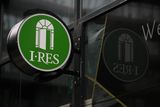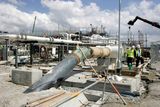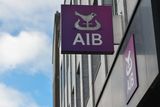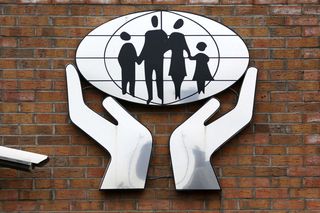ESB targets UK Big Six in consumer energy first
Almost 850 people were left without power this afternoon after a cable fault in North Dublin
The ESB will start selling electricity and gas to consumers in England, Scotland and Wales next year.
The decision to enter the British consumer market is arguably one of the biggest strategic decisions ever taken by the ESB, whose chief executive is Pat O'Doherty.
Codenamed Project Arrow, the semi-state's push into the British market will begin with a soft launch in July, and a hard launch next October, it has told potential service providers to its new British business.
The UK energy market is dominated by the 'Big Six' suppliers, including Centrica, which owns Bord Gáis Energy in Ireland, and SSE, which owns Airtricity.
But there are 50 gas and electricity suppliers in the consumer market there, including many smaller operators.
The ESB, whose retail arm here is called Electric Ireland, already has a UK presence, but only in transmission and electricity generation.
It owns NIE Networks, having bought that business in 2010 for over £1bn (€1.2bn). NIE Networks employs around 1,300 people but owns and manages transmission infrastructure rather than having a retail customer base.
Power NI, which was once part of NIE, was not part of the sale to the ESB. Power NI is owned by Viridian, which was itself sold earlier this year to US investment group I Squared Capital for about €1bn. Viridian also owns Energia in Ireland.
The ESB also owns power stations in Britain, including the 884MW Carrington plant outside Manchester that was commissioned this year. That cost over €700m and can generate enough electricity to power one million homes. The ESB also owns the 350MW Corby power plant in Northamptonshire, as well as two windfarms in England and one in Wales.
It also owns a stake in a €200m-plus biomass power generating plant in Essex that's due to be operational from next year.
In a statement to the Irish Independent, the ESB insisted that its Project Arrow is at a "very early stage" despite having pencilled in a launch date, and that it is just "one of the opportunities being explored" to position the company competitively in the emerging all-islands energy market.
The UK's Competition and Markets Authority finalised a two-year probe into Britain's energy market during the summer.
It now aims to make the market more competitive and encourage people to switch providers. The measures it introduced include a price cap on power provided on pre-pay meters.
The UK's energy regulator, Ofgem, said last week that in the first nine months of 2016, 5.5m consumer energy accounts were switched to new providers. That was a 28pc increase on the corresponding period in 2015.
The level of switching activity in the first nine months of 2016 was the highest in four years.
There has been speculation that the UK Government might also intervene in the market to tackle high energy prices.
The ESB is currently seeking a company to undertake residential gas and electricity meter-reading activities for it in Britain.
The four-year contract is set to begin early next year.
The ESB made an operating profit of €287m in the first half of 2016, and paid €31m in dividends to the State during the period.
Join the Irish Independent WhatsApp channel
Stay up to date with all the latest news














